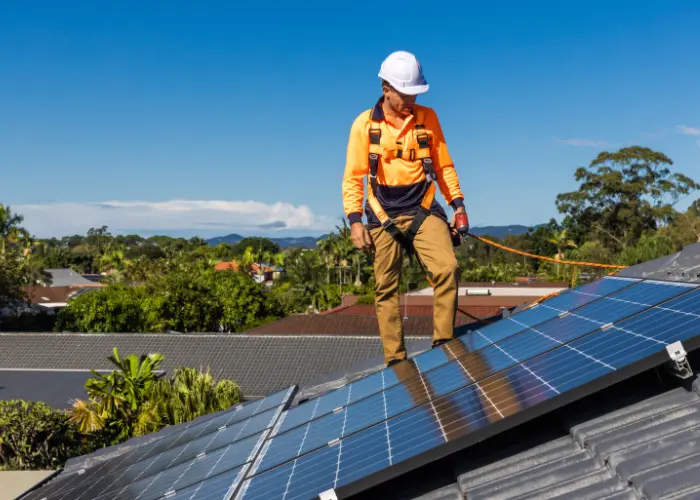Capturing the Sun: A Thorough Guide to Installing Solar Panels in Sydney Homes
In recent times, there’s been a rising interest in sustainable living and renewable energy sources. One of the most effective ways individuals can contribute to a greener planet is by tapping into the power of the sun through residential solar panel installations. Sydney, with its abundant sunshine and commitment to sustainability, provides an ideal backdrop for homeowners to embrace solar energy. In this article, we’ll delve into the benefits, considerations, and step-by-step process of installing solar panels in Sydney homes.
The Advantages of Installing Solar Panels in Homes:
Environmental Benefits:
Sydney’s dedication to reducing carbon footprints aligns perfectly with the environmental advantages of solar energy. Opting for residential solar panels helps homeowners contribute to a cleaner atmosphere, reducing greenhouse gas emissions and combating climate change.
Financial Savings:
Although the upfront cost of solar panels might seem significant, homeowners in Sydney can enjoy substantial financial benefits in the long run. With ample sunlight, solar panels generate significant electricity, reducing reliance on traditional power sources and lowering electricity bills.
Considerations before Installation:
Roof Assessment:
Before proceeding with residential solar panel installation, it’s crucial to assess the condition and orientation of the roof. Ideally, the roof should have a southern orientation to maximize sunlight exposure. Additionally, the roof’s structural integrity must be evaluated to ensure it can support the weight of solar panels.
Local Regulations and Permits:
Sydney has specific regulations governing residential solar panel installations. Homeowners need to obtain necessary permits and adhere to local guidelines. Working with a reputable solar installation company can help navigate the regulatory landscape seamlessly.
Energy Consumption Analysis:
Understanding your household’s energy consumption patterns is essential for determining the appropriate size of the solar panel system. Conduct an energy audit to identify areas where energy efficiency improvements can complement solar power generation.

Steps in Installing Solar Panels in Homes:
Consultation and System Design:
Engage with a reputable solar installation company for a comprehensive consultation. Professionals will assess your energy needs, evaluate your roof, and design a customised solar panel system tailored to your requirements.
Permitting and Approval:
The installation process begins with obtaining necessary permits from local authorities. Your chosen residential solar installation company should handle this process, ensuring compliance with all regulations.
Installation Day:
On the scheduled installation day, a team of trained technicians will install the residential solar panels on your roof. The process involves securing mounting brackets, connecting the panels, and integrating the system with your household electrical infrastructure.

Inspection and Commissioning:
Post-installation, the system undergoes a thorough inspection to ensure optimal performance and safety. Once approved, the solar panel system is commissioned, and you can start harnessing solar energy to power your home.
Monitoring and Maintenance:
A well-maintained residential solar panel system is essential for long-term efficiency. Regular monitoring and maintenance, such as cleaning panels and checking for any issues, will ensure your system operates at peak performance.
Conclusion:
Residential solar panel installation in Sydney is a forward-thinking investment that not only benefits the environment but also provides homeowners with substantial financial advantages. By considering key factors, adhering to local regulations, and partnering with reputable installation professionals, residents can seamlessly transition to a sustainable and energy-efficient lifestyle. As Sydney continues to embrace solar energy, residential solar panel installations will play a pivotal role in shaping a greener and more sustainable future for the city and its residents.


